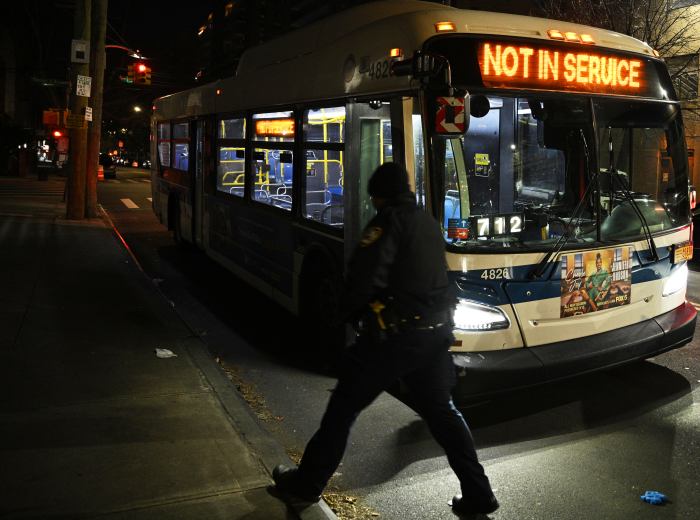The ferry service was one of the major carrots that Bloomberg and City Council Speaker Christine Quinn gave to City Councilmember Dominic Recchia in exchange for his support of congestion pricing.
By Stephen Witt
Coney Island may still see ferry service even though Mayor Bloomberg's congestion pricing plan has been turned down in Albany, according to a city official.
The ferry service was one of the major carrots that Bloomberg and City Council Speaker Christine Quinn gave to City Councilmember Dominic Recchia in exchange for his support of congestion pricing.
“The Administration is supportive of increased ferry service as a way to reduce traffic on the roadways and reduce traffic congestion,” said New York City Economic Development Corporation (NYCEDC) spokesperson Janel Patterson.
“NYCEDC will be issuing an RFP (request for proposals) in the near future for a consultant to evaluate the feasibility of ferry service to Coney Island. The study will examine possible routes, potential ridership and possible landing sites,” she added.
Recchia said he supported Bloomberg's plan to charge borough motorists to drive to the busier parts of Manhattan in part in exchange for the ferry service.
“The congestion pricing money would have helped pay for [ferry] service. Now we'll have to see if there's another mechanism to pay for it, but this sets it behind,” said Recchia.
Recchia said the deal he struck with Bloomberg and Quinn to support the plan also included the addition of more express busses to his district and express trains to Stillwell Avenue in Coney Island.
Regarding the ferries, Recchia said they were looking at landings off West 8th Street and the Coney Island Creek.
There was also supposed to be a ferry landing on 58th Street, as well as other possible landings in Coney Island, he explained.
Recchia said the ferry proposals would have involved the community and meetings were being planned when the congestion pricing plan fell through in Albany.
The meetings are on hold for now, said Recchia. He said the plan may not be dead, just delayed.
Recchia said bringing ferries to Coney Island would not only help commuters get to work in Manhattan, but would be a good mode of transportation for tourists wanting to visit the attractions of Coney Island.
“We'll have to see what we can do. If it [congestion pricing] went through, we would have had it and it would have been great for the city,” he said.
The institution of ferries in Coney Island as of now would probably be separated from the Coney Island Development Corporation (CIDC), which is charged with redeveloping the area, he said.
Also not discounting the idea is Quinn, who touted a five-borough ferry system in her recent “State of the City” address.
“In spite of this [congestion pricing] setback, the Council remains fully committed to environmental responsibility and to improving and expanding our mass transit system,” said Quinn.
“We must now build new coalitions around [a] forward-looking transportation policy that will improve public health and move people out of their cars and into buses, trains and ferries,” she added.


































